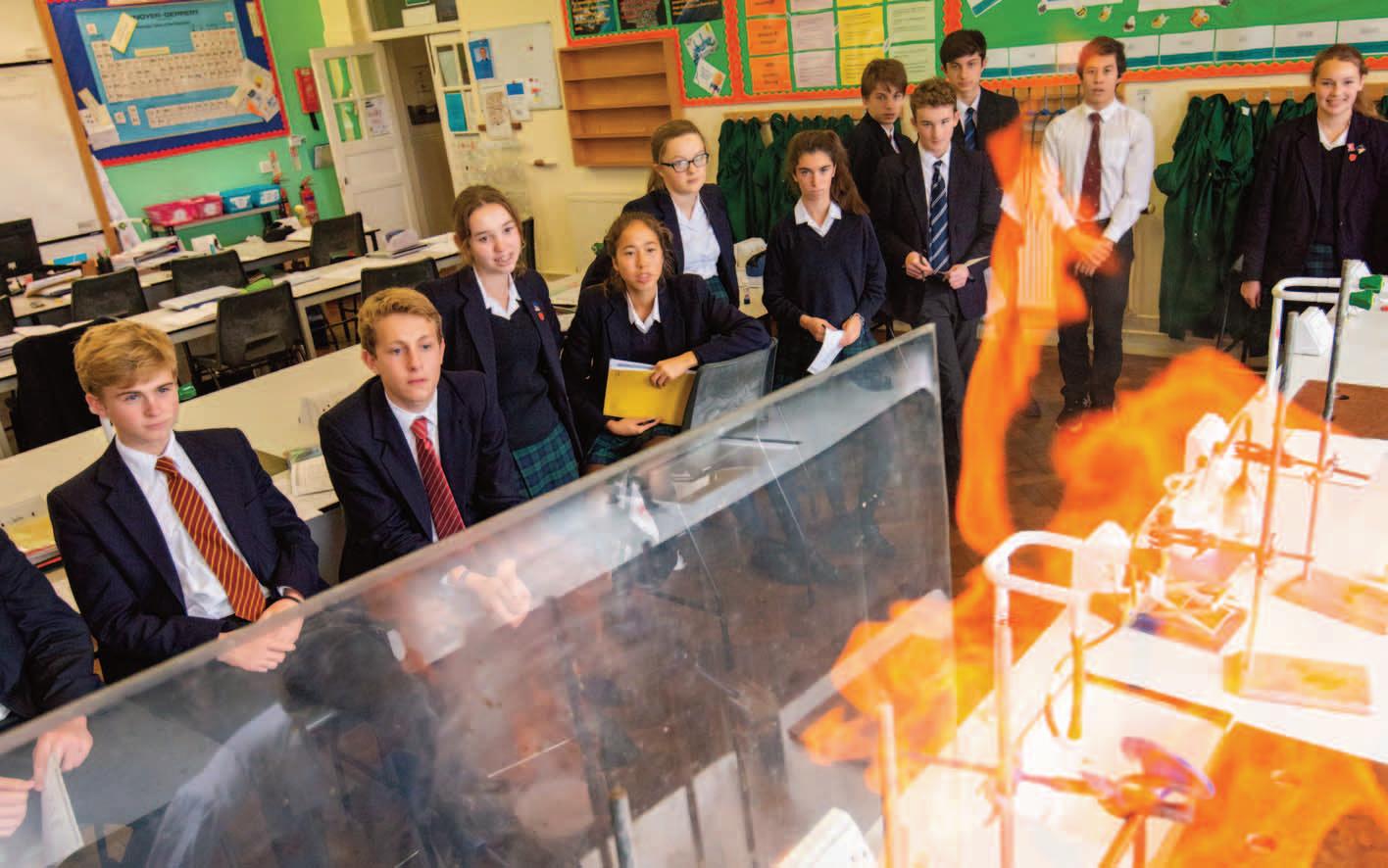2 minute read
Maths
from GCSE Subject Guide
Next Article
HEAD OF DEPARTMENT: Mr M Campbell
CONTACT DETAILS: mjc@felsted.org Twitter: @Felstedmaths
EXAM BOARD: Edexcel IGCSE
SYLLABUS CODE: 4MA1
www.edexcel.com
ASSESSMENT: Two 2 hour papers, each worth 50% of the overall mark. Both papers require a calculator. Each paper may assess any area of the syllabus and will include questions on 4 assessment areas:
1. Number 2. Algebra 3. Geometry 4. Statistics
Sets 1–5 sit the higher tier papers. Set 6 sit the foundation tier papers; the highest grade at foundation tier is a 5.
Set 1 students also work towards a qualification in Additional Maths (OCR Additional Maths FSMQ) and sit a 2 hour exam at the end of year 11. The qualification explores some of the more fundamental areas of Maths in greater depth, particularly calculus and trigonometry and is excellent preparation for those going on to study Maths or Further Maths at A level.
The topics range in difficulty, but Maths is a brilliant subject.
Ollie, Year 10
Why should I study Mathematics?
Mathematics deals with topics such as proof which aren’t to be found in other academic disciplines. Concepts such as infinity naturally evoke a sense of awe and wonder and over the 2 years pupils should begin to develop a sense of the power of Mathematics to explain phenomena in the natural world. Pupils are introduced to some more functional Mathematics, including statistical analysis and finance. The course also introduces many concepts which will be explored in more depth in the Sixth Form such as functions, sequences, series and calculus and as such provides an excellent foundation for those interested in studying Mathematics beyond Year 11.
Expectations of independent study
Five 30 minute pieces of work per fortnight. Two of these pieces will be assessed formally by the teacher. The other pieces of work will be self or peer assessed.
What do the pupils say?
“The course is challenging but enjoyable.”
“The topics range in difficulty, but Maths is a brilliant subject.”
“I really enjoy reading about the Mathematician of the Day and seeing the curve of the week on the Maths noticeboard.”
What skills will I develop by studying this subject?
Pupils will develop their problemsolving skills in particular and will learn how to apply the taught theory in a range of different contexts. Powers of deduction, analysis and logic are developed in some depth, alongside the ability to apply Mathematics to the real world.










